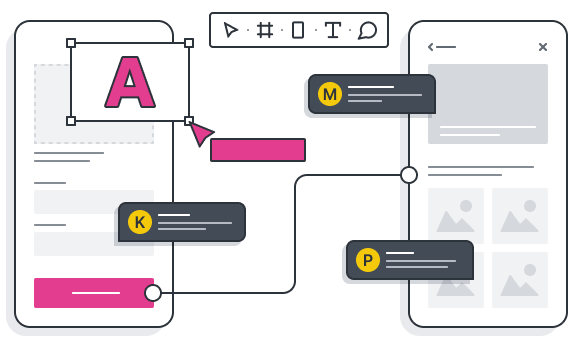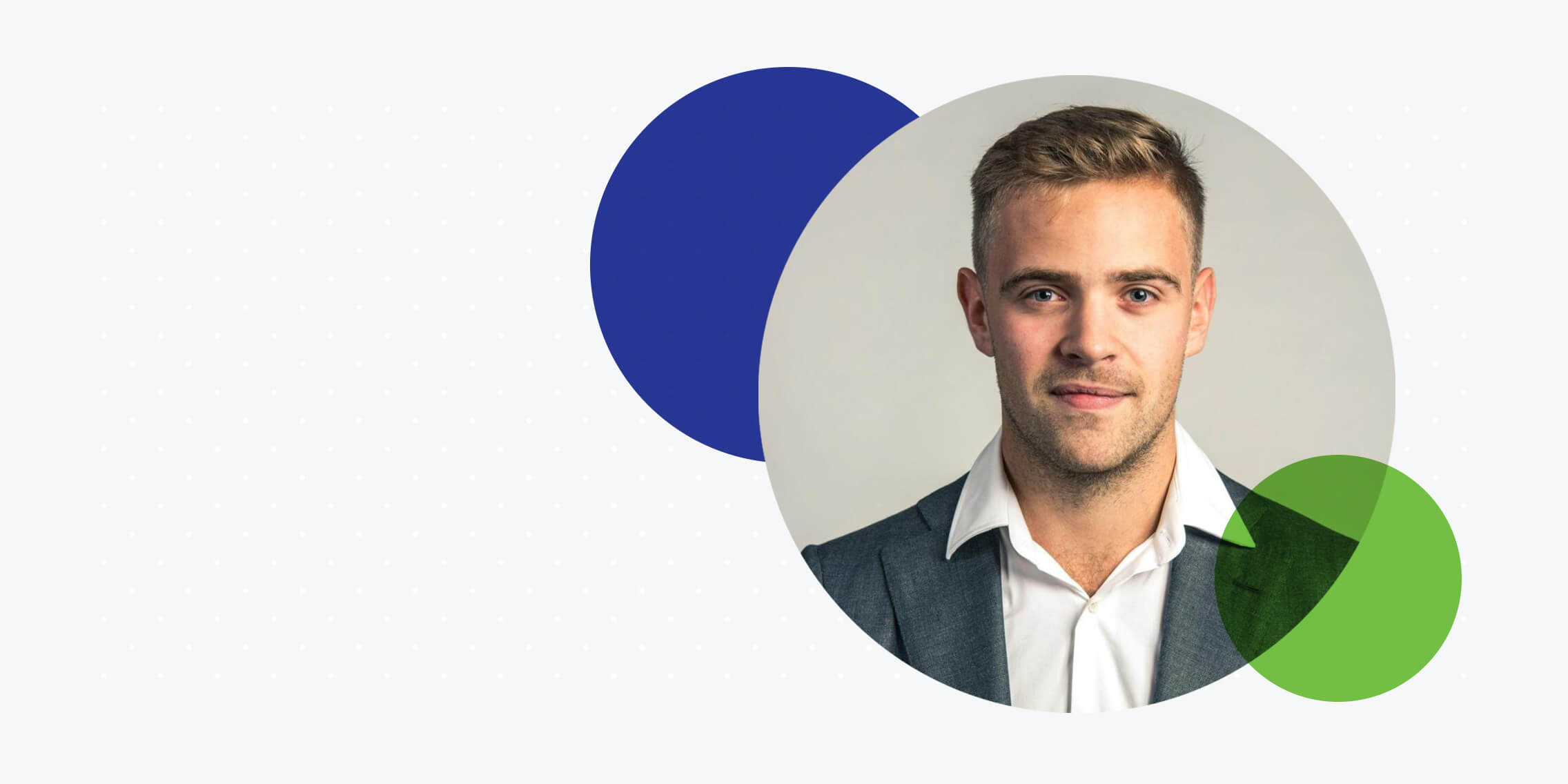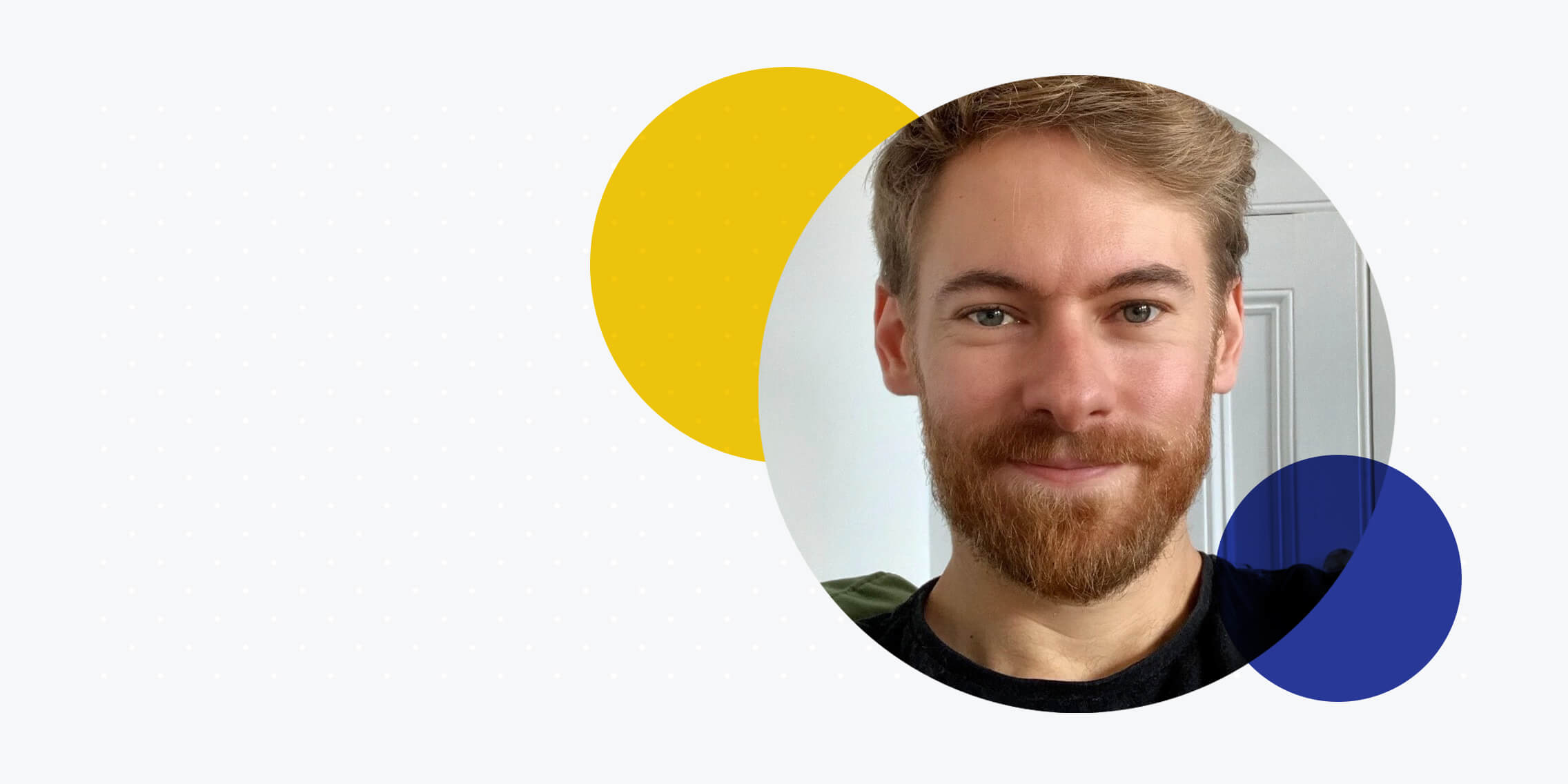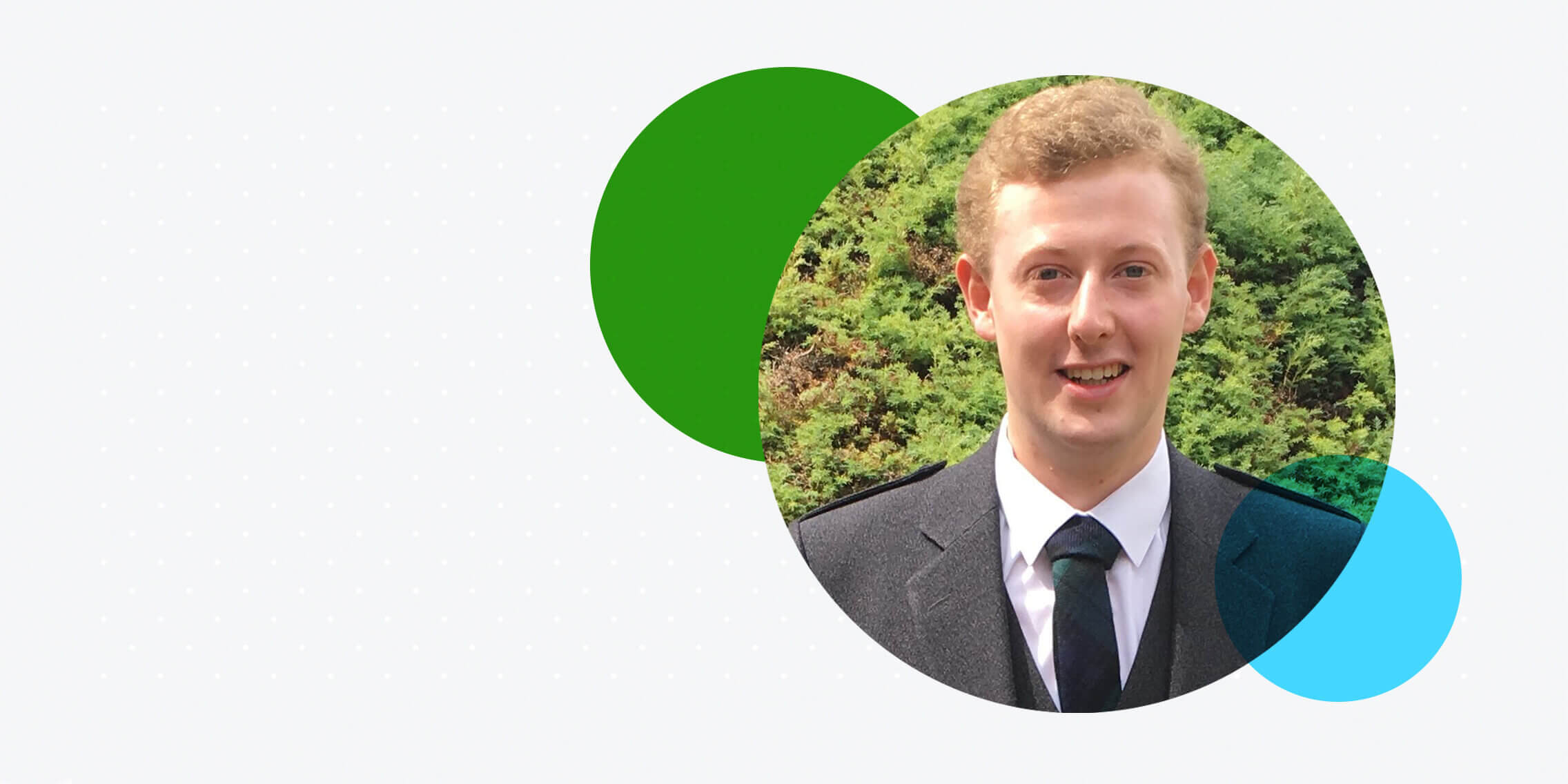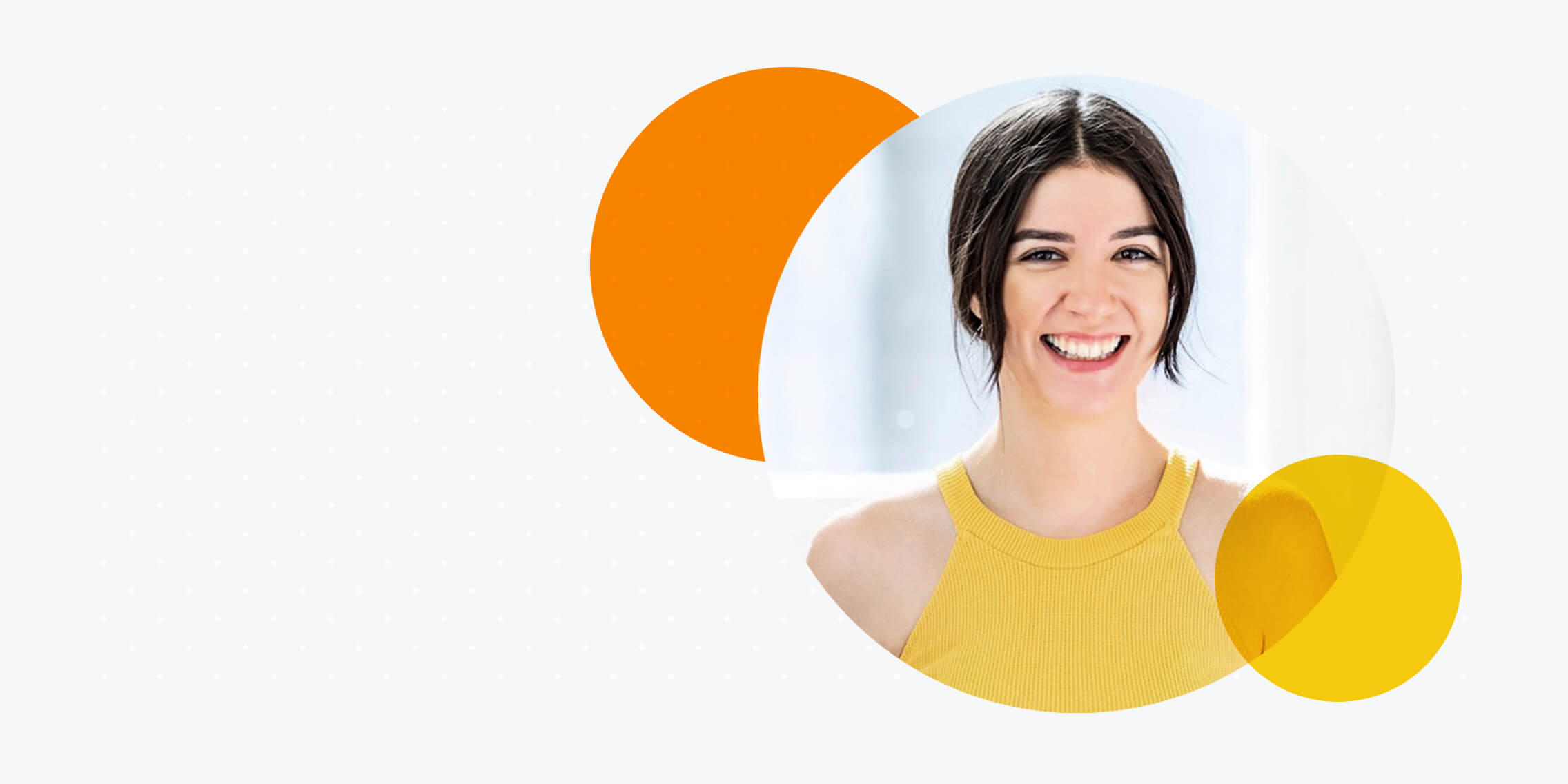What brought UX onto your radar?
When I was studying business administration in Rotterdam, I set up my own transcription business. It got so big that we needed to build an online platform to manage things better.
I was doing UX without knowing it! I created user flows, worked on its design, and I really enjoyed thinking deeply about our product.
We sold our transcription company in 2017 and I started working at a big tech company. But I realised that I didn’t enjoy it. Corporate life doesn’t suit me and I didn’t enjoy doing sales. I felt put in a box. So I quit after a year and a half there with no plan.
I took a few months to think about what to do next and then I found the Professional Diploma in UX Design. It was probably the first time that I really enjoyed studying something.
Where did you get the idea for your startup, User Sense?
The Professional Diploma inspired me to create my own startup, User Sense. I probably wouldn’t be here if it wasn’t for the course.
I loved the user research module and how Colman taught it. I’m now doing a masters in applied cognitive psychology because of that.
The usability test assignment showed me how badly designed some websites are.
I Googled to see if you could do usability testing online. And found out that there were a lot of American corporations doing remote testing. But they weren’t localised for European markets. I thought I could do that.
What do you do at User Sense?
We do usability testing and deliver a research report and a highlight video to clients. We show them the most interesting findings in a 5-10 minute video.
These videos have a real human touch compared to data tools like Google Analytics. And you don’t have an expert telling you what to do – it’s just the truth from real users.
We launched last June. And then since last August we’ve had actual clients – and they pay us!
Our goal is to build a localised usability testing for the European market. We’re already conducting tests in the Netherlands, the UK and Germany. We want to expand into France and Scandinavia next.
Startup life is much better than working for a corporation. You can do so much more, you’ve more freedom, and everything is more challenging.
What are the benefits of remote usability testing?
Traditionally you’d do testing in a usability lab. So participants would come to a physical location. And you’d have researchers, camera equipment and they’d be recorded. I don’t think it’s a natural environment.
We have a database of participants who can do usability testing from their own phone or laptop, in their own home, in their own time. It’s much easier if you need to hire participants with a specific profile.
And this makes it much easier to test your website internationally too. It can be challenging to design for different cultures or countries, but usability testing gives you great insight.
Did you use your UX skills to build User Sense?
The course coincided with building User Sense. I really valued how I could design things in Sketch or Figma.
I started User Sense with my business partner Frank. Frank’s my former high school IT teacher and he helped to build my transcription business too.
Before I’d just explain what I wanted in my head to Frank and he’d build it. But it always turned out differently to what I had imagined. We both had much more clarity with building User Sense because I’d studied UX.
It was always my dream to become an entrepreneur. I want to do that for the rest of my life. The skills I’ve learnt at the UX Design Institute will pay off in future projects as well.
How did you know that User Sense was worth pursuing as a business?
The book The Mom Test was recommended in the diploma. I read that to find out if my startup idea was a good one.
From that I interviewed key stakeholders in the Dutch market to learn how they do usability testing. And based on that, I found out that there was a gap in the market.
The book helped validate our idea. I now recommend it to all of my clients!
Are companies becoming more aware of the importance of UX and UX research?
We often have to educate our clients about the value of UX. The diploma gave me the credibility and confidence to talk to them about it.
UX maturity levels differ per country. It’s more mature in the US and Scandinavia. But it’s getting bigger in the Netherlands.
Companies still want to skip UX research completely. It’s short sighted to say that it’s not needed. You don’t know if you’re on the right track. And if you skip the whole research phase, it’ll probably be more expensive in the long run.
We sometimes have to convince some companies to listen to user feedback. Why wouldn’t you want to listen to users? It can only make your business better.
In your opinion, is there a connection between UX and business growth?
Yes, definitely. If you spend more time with your users, you’ll likely build a product that fits their needs. And if they enjoy your product they’ll probably recommend it to someone else.
When a flow to order a product is easy, that’ll generate more revenue. And if users don’t encounter any issues during the process then it won’t raise support tickets or calls. So it will also save money and generate revenue. It works both ways.
We worked with quite a big client who had a discount code on their website for like three years. And it turned out that 80 percent of users couldn’t use it. That was very painful. If they’d done user research earlier, it would have generated so much more revenue.
UX is just logical. With the pandemic, people have really seen its value.
Would you recommend the course? To who?
Do the course. I wouldn’t have founded User Sense if it wasn’t for the UX Design Institute. I’d say the course is a good starting point for anyone who wants to change careers.
I’d recommend investing in the course now and building up some experience. I feel like UX is definitely a growth market and it’s here to stay for the foreseeable future.
The founders of a startup should also learn UX. It helps you to make better business decisions and it improves your ideas and product. It’s definitely useful to know the full process. UX is a skill that they could use over and over again.
It’s good to get your whole team involved in the UX process though. Showing your entire team a usability testing highlight video can help get their buy-in.
